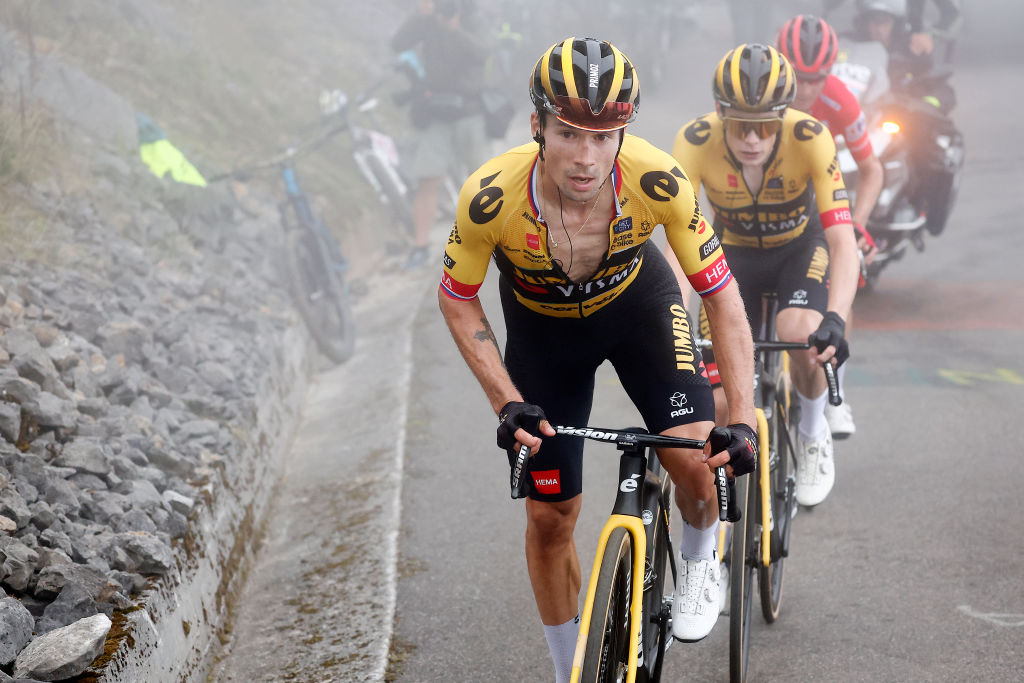Jumbo-Visma directeur sportif Merijn Zeeman has lifted the lid on the intra-team tensions that arose on the Alto de L’Angliru stage at the Vuelta a España, admitting that the team’s three leaders “should have stayed together” on the brutal climb to avoid any tensions about team leadership and who should go on to win the Vuelta.
The stage was Sepp Kuss‘ ninth day in the red leader’s jersey, but he was left behind on the steep slopes of the Asturian climb as Primož Roglič pushed on with Jonas Vingegaard in tow.
At the time, after Vingegaard had closed to within eight seconds of the lead, all sides denied any tension or rivalry, saying that the trio were free to race one another.
However, Zeeman now admits that it was wrong to leave eventual Vuelta winner Kuss behind on the summit finish.
“Everything went the way we wanted again. There were three of us left and that was actually the moment when things didn’t go well,” Zeeman told the Met open vizier podcast, according to WielerFlits.
“Sepp couldn’t keep up with Primož and Jonas at one point. Then there was no more teamwork.
“Everything that happened up to that point had been teamwork but on the Angliru they should have stayed together. Attacking to make other riders have to work is something different to when you start attacking each other.
“I should add right away that when you ride uphill on gradients of up to 20% you race with a heart rate of 200, so you can’t expect those guys to think clearly.”
In the end, Kuss survived in the red jersey, with the next day’s stage to La Cruz de Linares seeing the three riders present a united front in the face of widespread confusion and criticism. Roglič and Vingegaard shepherded Kuss up the final climb, having dispensed with the previous ‘free for all’ racing style.
Zeeman said that the team got together in the evening after the Angliru stage, with riders free to give their opinions on what had happened. an agreement was to back Kuss was thrashed out but not unanimously.
“The way we built the whole team is that you ask people from the bottom up – how do you look at it?” Zeeman explained .
“Give your opinion and talk to each other instead of about each other. We started this in 2016 or 2017 and a strong foundation has rolled out from there, a culture. That’s essentially what our team has been built on.
“Cycling for us is a team sport not an individual one,” he added. “That evening I put all the men together around one table. I spoke to Jonas, Sepp, and Primož…
Click Here to Read the Full Original Article at CyclingNews RSS Feed…

